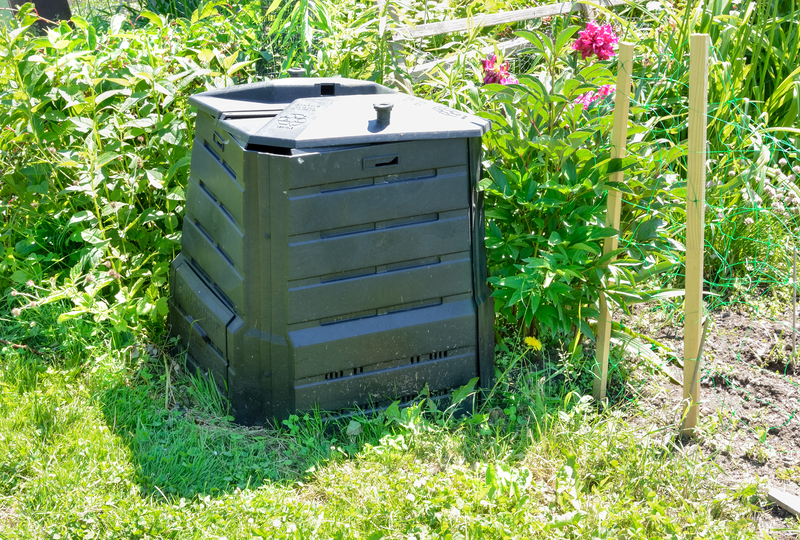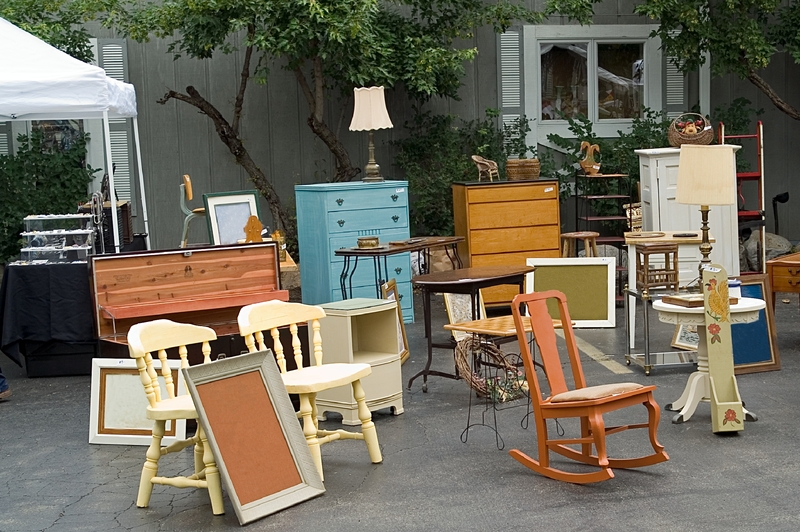How to Responsibly Recycle Pots and Pans in Your Community
Every household experiences it--over time, pots and pans become too scratched, warped, or outdated to use. But what do you do with those cookware items that have served their time? Tossing them in the trash isn't environmentally friendly, and you might be surprised to learn how many ways you can recycle old pots and pans in your own community. This article will guide you through the best practices, local options, and creative ideas to ensure your unwanted cookware is disposed of responsibly--and perhaps even given a new life!
Why Recycle Cookware Responsibly?
- Reduces landfill use - Metal cookware can take centuries to decompose.
- Saves energy - Recycling metals uses less energy than manufacturing new materials.
- Protects the environment - Prevents the possible leaching of metals and chemicals into soil and water.

Understanding the Materials in Cookware
Before you embark on the journey to recycle your pots and pans, it's helpful to recognize what they're made of. Most cookware pieces fall under these categories:
- Aluminum: Lightweight and resistant to corrosion. Common in both pans and some pot models.
- Stainless Steel: Durable, rust-resistant, and heavy. Often used for pots and high-quality pans.
- Cast Iron: Extremely heavy, dark, and maintains heat for longer periods. Found mostly in skillets.
- Copper: Offers excellent heat conductivity. Less common due to cost and care requirements.
- Non-stick and coated cookware: These include pots and pans with Teflon, ceramic, or enamel coatings.
It can be useful to identify and separate your pots and pans based on these materials before recycling, as some facilities treat them differently.
Can You Place Old Pots and Pans in Your Curbside Recycling?
A common question when it comes to recycling old cookware is whether these items belong in the standard curbside recycling bin. In the majority of communities, the answer is no. Cookware does not belong in your curbside recycling unless specifically stated by your local waste management service.
- Cookware is often too heavy for standard recycling trucks and machinery.
- Handles or non-metal parts may damage recycling equipment.
- Non-stick or coated surfaces can contaminate metal recycling streams.
Always check your municipality's website or call your local recycling center to clarify their specific policies on accepting cookware.
How to Prepare Pots and Pans for Recycling
Proper preparation ensures your cookware is fit for recycling and helps local facilities process items efficiently. Here's how to get started:
- Remove Non-Metal Parts: Take off any plastic, rubber, or wood handles if you can. If lids feature glass, silicone, or plastic, separate these as well.
- Clean the Cookware: Rinse to remove food residue, oils, or any coating that might still be present.
- Sort Your Pots and Pans: Group by type--ferrous (magnetic, e.g., steel and iron) or non-ferrous (non-magnetic, e.g., aluminum and copper).
Where to Recycle Pots and Pans Locally
Let's look at community options for recycling old pots and pans and ensure your items are directed to the best possible venue:
1. Local Scrap Metal Yards
The most reliable method is often your nearest scrap metal yard. Most yards accept metal cookware. They'll pay you by weight for scrap metal, including pots and pans made from steel, aluminum, or copper.
- Search "scrap metal recycling near me" online.
- Bring in your cookware once you've removed non-metal parts.
- Ask about coated cookware; some yards may not accept non-stick surfaces.
2. City Recycling Events and Household Hazardous Waste Days
Many cities hold special annual or periodic recycling days for hard-to-recycle items, including old kitchenware. These events often accept a broader range of materials than usual curbside pickup.
- Check your city's recycling calendar or website for upcoming events.
- Bring cleaned, prepared pans to the designated drop-off location.
3. Donation to Secondhand Stores and Charities
If your pots and pans are still usable, consider donating them to local thrift shops or charities. Many shelters, food banks, and non-profits accept gently used cookware to support people in need.
- Clean the cookware thoroughly before donation.
- Contact the organization ahead of time to check if they accept donations of used pots and pans.
4. Retail Take-Back Programs
Some kitchenware brands and stores sponsor take-back or trade-in programs, especially for premium cookware. This is an excellent option if you're replacing items with products from the same retailer.
- Inquire at the point of purchase about recycling options.
- Check store websites for recycling initiatives.
5. Community Recycling Centers
Dedicated recycling centers frequently accept metal goods, even if your curbside bin does not. Call ahead or visit their website to ensure they take old pans and pots.
- Bring sorted cookware (by material, if required, as outlined above).
- Ask staff for proper drop-off areas.
What About Non-Stick and Teflon-Coated Cookware?
One of the trickiest types to recycle is non-stick cookware, especially pans with Teflon or similar chemical coatings. Here's why this is a concern:
- Non-stick coatings can contaminate scrap metal recycling streams.
- Many facilities refuse coated pans entirely.
- Teflon contains PFAS "forever chemicals", which are hard to dispose of safely.
How to responsibly recycle non-stick pans:
- Contact local scrap yards and ask if they accept coated pans, or if they require the coating to be removed first.
- Check with national brands -- some offer mail-back services (e.g., Teflon's own recycling program).
- If there's no safe recycling option, consider creative reuse ideas (see below).
Never burn or try to remove Teflon yourself--doing so releases harmful fumes.
Creative Ideas for Reusing Old Cookware
If recycling isn't feasible due to restrictions, or if you love to upcycle, your old cookware has potential far beyond the kitchen! Here are some ways to repurpose old pots and pans creatively:
Garden Planters
Give new life to deep pots or wide pans by turning them into quirky garden planters. With a drainage hole (carefully drilled), they make eye-catching containers for flowers, herbs, or succulents.
Storage and Organization
Old pans can serve as stylish tray organizers for drawers, art supplies, or hardware in your garage or craft room. Larger pots can store kids' toys or pet supplies.
Birdbaths & Fairy Gardens
A shallow, old pan or large pot lid can become a whimsical birdbath or base for a fairy garden. Decorate as you please!
Wall Art or Clocks
Vintage or decorative pans, especially those with character, can be cleaned up and painted to create kitchen wall art, memo boards, or even turned into a one-of-a-kind wall clock.
Common Mistakes to Avoid When Disposing of Cookware
- Do not put old pots and pans in the trash--they will likely wind up in a landfill where metal leaches into soil and water.
- Avoid putting cookware in curbside recycling bins unless your local program explicitly states it's OK.
- Don't combine materials--mixed metal, plastic, or glass components can reduce their usefulness as scrap.
- Never incinerate non-stick pans, which can release toxic fumes from coatings.
FAQ: Recycling Cookware in Your Community
-
Q: Can I recycle cookware with burnt or damaged surfaces?
A: Yes, as long as it's made from recyclable metal. Damage or food residue doesn't affect scrap value, but always clean pans as much as possible for disposal. -
Q: Does my city accept cookware at the curb?
A: Only if your local recycling program specifically permits it--always check first! -
Q: Can ceramic pots or glass lids be recycled?
A: These typically require specialty recycling facilities. Call your local recycling center for their guidelines. -
Q: What if my old pans are antiques or collectible?
A: Consider selling or donating them--antiques have value well beyond scrap metal and may be loved by collectors!

How to Find a Cookware Recycling Option Near You
Making sure your pots and pans are disposed of responsibly is easier than ever thanks to online tools. Here's how to locate nearby recycling or donation options:
-
Check Local Resources:
- Visit your town or city's waste management website
- Search for "metal recycling near me" online
- Use National Directories:
- Call Ahead: Confirm that your selected site accepts cookware and ask about preparation requirements.
Conclusion: Making Responsible Recycling a Part of Your Routine
Unwanted cookware should never be an environmental burden--or wasted in landfills. Instead, knowing how to recycle pots and pans in your community can help you protect natural resources and support local charities or schools. Whether you opt for scrap yard recycling, donation, or a creative reuse project, every effort counts toward a greener planet.
The next time you clean out your kitchen or replace a set of cookware, remember these tips for responsibly recycling pots and pans. With just a little effort, you'll keep valuable materials in circulation, reduce waste, and set an example for others in your community.